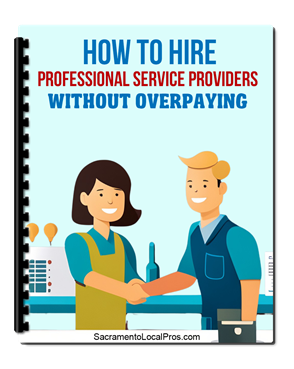Navigating the maze of buying or selling a property requires a guide who not only understands the market but also aligns with your unique needs and preferences.
The key to a smooth real estate transaction lies in partnering with an agent who brings expertise, integrity, and a personalized touch to the process.
In a sea of available agents, finding your perfect match may seem like searching for a needle in a haystack.
To streamline your search and ensure you make the right choice, we present 10 essential tips for identifying a real estate agent who can transform this complex journey into an enjoyable and successful experience.
1)) Do Your Research
Before choosing a real estate agent, take the time to do some research.
Look for agents in your area with good reviews and a solid track record of successful sales. You can also ask friends and family for recommendations.
Tips for Doing Your Research:
- Look up online reviews and ratings on platforms like Zillow, Realtor.com, and Google to gauge past client satisfaction.
- Check the agent's website and social media profiles to understand their market presence and professionalism.
- Verify the agent's credentials, including licenses, awards, and affiliations with reputable real estate organizations.
- Examine the agent's transaction history to assess their experience in your specific market segment.
- Attend open houses to observe real estate agents in action, noting their communication skills and how they present the property.
Conducting thorough research is the foundational step in finding a real estate agent who not only understands your needs but can also guide you effectively through the buying or selling process.
By using these tips to scrutinize an agent's online presence, track record, and professional behavior, you're more likely to secure a partnership that is both productive and pleasant.
2)) Interview Multiple Agents
Don't settle for the first real estate agent you come across. Take the time to interview multiple agents to find one that you feel comfortable working with and who understands your needs.
Tips for Interviewing Multiple Agents:
- Prepare a list of questions to ask each agent, focusing on their experience, knowledge of the local market, and their strategy for buying or selling a home.
- Pay attention to the agent's communication style and availability. Choose someone who is responsive and willing to communicate in the way that works best for you.
- Consider the chemistry between you and the agent. It's important to work with someone who understands your needs and with whom you feel comfortable discussing your concerns.
Finding the right real estate agent requires a blend of diligent research and personal interaction.
By interviewing multiple agents, you not only compare their expertise and approach but also gauge who best aligns with your communication style and personal preferences.
This step is crucial in establishing a relationship based on trust and mutual understanding, paving the way for a smoother and more successful real estate transaction.
3)) Check Their Credentials
Make sure the real estate agent you are considering is licensed and has any necessary certifications.
This will ensure that they have the knowledge and expertise needed to help you buy or sell a home.
Tips for Checking a Real Estate Agent's Credentials:
- Verify the real estate agent's license status through your state's Real Estate Commission website to ensure it's current and in good standing.
- Look for any additional certifications that demonstrate specialized knowledge or skills, such as Accredited Buyer’s Representative (ABR) or Seller Representative Specialist (SRS).
- Ask for references or testimonials from previous clients to get insights into the agent's professionalism and success rate.
- Inquire about any awards or recognitions the agent has received from the real estate community, which can indicate a high level of respect and accomplishment in the industry.
- Confirm membership in professional associations like the National Association of Realtors (NAR), which binds members to a strict code of ethics and standards of practice.
Ensuring your real estate agent is credentialed and reputable establishes a foundation of trust and expertise for your home buying or selling experience.
By carefully verifying their license, special certifications, client testimonials, and professional affiliations, you are taking critical steps to ensure that your agent is not only qualified but also highly regarded in the industry.
This diligence upfront can significantly impact the smoothness and success of your real estate transaction, giving you peace of mind through the process.
4)) Experience Matters
Look for an agent who has experience in the local market and knows the ins and outs of buying or selling homes in your area.
An experienced agent will be able to guide you through the process with ease.
Tips for Evaluating an Agent's Experience:
- Inquire about the number of years the agent has been working in the real estate field, especially within your area of interest. Longevity can indicate a deep understanding of the local market.
- Ask for a portfolio of past listings and sales to get a sense of the types of homes and transactions the agent has handled, looking specifically for experience that aligns with your needs.
- Discuss the agent’s negotiation strategies and how they have navigated challenges in past transactions. This will give you insight into their problem-solving skills and ability to secure favorable outcomes.
Choosing an experienced real estate agent is invaluable in navigating the complexities of the real estate market, particularly in your local area.
Their seasoned insights, proven negotiation skills, and comprehensive understanding of market trends and regulations ensure a more informed, efficient, and favorable process for buyers and sellers alike.
Engaging an agent with a solid track record and extensive local expertise positions you for success in achieving your real estate goals.
5)) Communication Is Key
When choosing a real estate agent, make sure they are easy to communicate with and readily available to answer any questions you may have.
Good communication is essential for a successful home buying or selling experience.
Tips for Ensuring Good Communication with Your Agent:
- Establish your preferred method of communication (e.g., email, text, phone call) early on to ensure messages are seen and replied to in a timely manner.
- Set expectations for response times. Discuss how quickly you can expect an answer to your queries, especially during critical negotiation phases.
- Request regular updates. Ask your agent to provide you with frequent updates on your buying or selling process, even if there's no news, to keep you in the loop.
- Be clear about your needs and concerns from the start. A clear understanding of your priorities and deal-breakers will help your agent represent your interests more effectively.
- Encourage an open dialogue. Choose an agent who is not only willing to share information but also listens to your opinions and concerns, integrating them into their strategy.
Maintaining open and effective communication with your real estate agent is fundamental to the success of your home-buying or selling experience.
By setting clear expectations for communication styles, response times, and regular updates, you pave the way for a collaborative and transparent partnership.
Ensure you select an agent who not only comprehends your requirements but also values your input, facilitating a smoother, more personalized transaction process.
This attentive approach to communication will significantly contribute to achieving your real estate objectives with confidence and ease.
6)) Negotiation Skills
A good real estate agent should have strong negotiation skills to help you get the best deal possible on your home purchase or sale.
Ask about their approach to negotiation during your interviews.
Tips for Assessing an Agent's Negotiation Skills:
- Ask the agent to describe their most challenging negotiation and how they handled it. This can give insight into their problem-solving capabilities and resilience.
- Inquire about specific strategies the agent uses to negotiate with opposing parties. Look for creativity and adaptability in their methods.
- Evaluate their understanding of market dynamics. A skilled negotiator will have a thorough knowledge of current market conditions and leverage this information effectively.
- Discuss how the agent balances client advocacy with pragmatism. The best negotiators can aggressively defend your interests while maintaining realistic expectations.
- Request feedback from past clients specifically regarding the agent’s negotiation skills. This firsthand testimony can be very telling of their ability to secure favorable deals.
A proficient negotiator is key to navigating the complexities of real estate transactions.
The right agent will not only understand the fine art of negotiation but will also possess the skills to advocate effectively on your behalf.
By assessing their approach to difficult negotiations, adaptability in strategy, and keen understanding of market dynamics, you ensure that your interests are robustly represented.
Seeking feedback from past clients can further validate the agent's capability to negotiate advantageous deals.
In essence, an agent's negotiation prowess can significantly impact the outcome of your real estate venture, making it a critical factor to consider during the selection process.
7)) Marketing Strategies
If you are selling a home, ask potential agents about their marketing strategies. A good agent will have a solid plan in place to help sell your home quickly and at a fair price.
Example of Effective Marketing Strategies:
Imagine a real estate agent proposing the following comprehensive marketing plan to sell your home quickly and at a competitive price:
- Professional Photography and Virtual Tours: High-quality, professional photos and a virtual tour to showcase your home's best features online, where most buyers begin their search.
- Targeted Online Advertising: Utilizing social media platforms and real estate websites to target advertisements to potential buyers looking for homes in your area.
- Open Houses and Private Showings: Organizing and hosting open houses to attract a wide audience, along with private showings for serious buyers.
- Staging Advice: Providing expert advice on staging your home to make it more appealing to potential buyers, which can include minor renovations or decoration tweaks.
- Local Networking: Using the agent's local connections and network to spread the word about your property, reaching potential buyers through community groups, and real estate networks.
This multi-faceted approach combines traditional and digital marketing strategies to ensure your home reaches the maximum number of potential buyers, increasing the likelihood of a quick sale at the best possible price.
Leveraging effective marketing strategies is paramount in the real estate industry, particularly when aiming to sell a property swiftly and at an optimal price.
By adopting a blend of traditional and digital methods, including professional photography, targeted online advertising, and strategic open houses, agents can significantly enhance the visibility and appeal of your home.
Furthermore, personalized staging advice and leveraging local networks ensure your property stands out in a competitive market.
Selecting an agent with a proven, dynamic marketing plan is crucial for attracting potential buyers and achieving your real estate goals.
8)) Trust Your Instincts
Trust your instincts when choosing a real estate agent. If something doesn't feel right or if you don't feel comfortable working with a particular agent, keep looking until you find one that fits your needs.
Tips for Trusting Your Instincts:
- Listen to Your Gut Feeling: If you feel uneasy or doubtful about an agent's sincerity or professionalism, consider it a significant factor and explore other options.
- Reflect on Communications: Assess how you feel after communicating with the agent. You should feel heard, respected, and valued.
- Consider Compatibility: Your ideal agent should share your communication style and be easy to get along with. Compatibility is key for a smooth working relationship.
- Re-evaluate Pressure Situations: If an agent seems more interested in making a quick sale than in meeting your needs, trust your instincts to pause or stop.
- Seek Transparency: An agent who is transparent and forthcoming about the process, fees, and any potential challenges is often more trustworthy.
Trust in your instincts plays a crucial role in the selection of a real estate agent, acting as your internal guide through the decision-making process.
By paying attention to how you feel about an agent's communication, compatibility, and overall transparency, you can avoid potential pitfalls and ensure a partnership that meets your needs and expectations.
Feeling comfortable and confident with your choice is paramount, as this individual will be instrumental in navigating one of the most significant transactions of your life.
Trusting your instincts, therefore, is not just advisable; it's essential for a successful real estate experience.
9)) Get References
Before making a final decision, ask potential agents for references from past clients.
This will give you insight into their past performance and how satisfied their clients were with their services.
Tips for Obtaining References:
- Request a Comprehensive List: Ask for a list of recent clients, including contact information, to ensure you can verify the agent's track record.
- Prepare Questions in Advance: Before reaching out to references, prepare a list of questions that cover key areas such as communication, negotiation skills, and overall satisfaction with the agent’s services.
- Look for Patterns: Pay attention to recurring themes in the feedback you receive. Positive patterns reinforce the agent’s strengths, while negative patterns can alert you to potential issues.
- Consider the Context: Realize that each client's expectations and experiences are unique. Consider the context of any criticisms or praise when evaluating the agent's suitability for your needs.
- Check Online Reviews: In addition to personal references, look for online reviews and testimonials to gather a well-rounded view of the agent’s reputation and performance.
Gathering references is a vital step in choosing the right real estate agent, providing invaluable insight into their methodology, client satisfaction, and success rate.
By meticulously evaluating feedback from past clients, you can gain a clearer picture of an agent's reliability, communication style, and effectiveness in negotiations.
The goal is to partner with an agent whose experience and approach align with your real estate objectives.
Thus, taking the time to verify references ensures you make an informed decision, paving the way for a more favorable and efficient home selling or buying process.
10)) Consider Compatibility
Consider how well you get along with the real estate agent before making your decision.
You will be spending quite a bit of time working together, so it's important to choose someone you feel comfortable with and who shares your goals.
Tips for Considering Compatibility:
- Evaluate Communication Styles: Make sure your preferred methods and frequency of communication align. If you prefer text messages and emails but your agent is more inclined to phone calls, there may be a mismatch.
- Share Your Vision: Discuss your real estate goals and expectations upfront. An agent who understands and respects your vision will be more likely to meet your needs.
- Assess Personal Rapport: You're likely to spend a lot of time with your agent, so feeling comfortable in their company is crucial. Look for someone who makes you feel at ease.
- Understand Their Approach: Every agent has a unique approach to buying and selling. Ensure their tactics and strategies align with your expectations and comfort level.
- Check Compatibility with Your Schedule: Your agent should be able to work within your availability. If your schedules clash too often, it might not be the right fit.
Ensuring compatibility with your real estate agent is fundamental to a productive and satisfying home buying or selling experience.
It hinges on shared communication styles, mutual respect for goals, and personal rapport, facilitating a smoother and more aligned process.
A compatible agent not only understands your vision but becomes a trusted advisor and ally in one of the most significant transactions of your life.
Taking the time to ensure you're on the same page will contribute to a more efficient, enjoyable, and successful reality experience.
Conclusion
Choosing the right real estate agent is a crucial step in navigating the complexities of buying or selling a property.
It requires careful consideration of the agent's experience, transparency, compatibility, and feedback from their past clients.
Trusting your instincts, obtaining thorough references, and ensuring a good match in communication styles and goals are all essential strategies to find someone who not only meets but exceeds your expectations.
The ideal agent is not just a facilitator of transactions; they are a pivotal guide through the emotional and financial intricacies of real estate, aiming to make your experience as seamless and positive as possible.
By taking these steps to heart, you'll be better equipped to select an agent who stands as a pillar of support and expertise, leading you to a successful and fulfilling outcome.
Related Articles and Guides
- How To Choose A Real Estate Agent
- How To Negotiate A Lower Real Estate Agent Commission Fee
- 10 Tips To Help You Determine Whether To Fire And Replace A Real Estate Agent
Are You Looking For The Best Real Estate Companies In Sacramento Ca? Click Here To Get In Touch With Top Real Estate Agents Today!
Download Our Free E-book!








